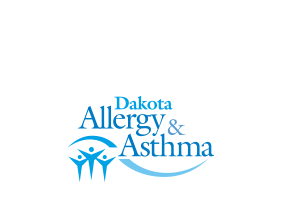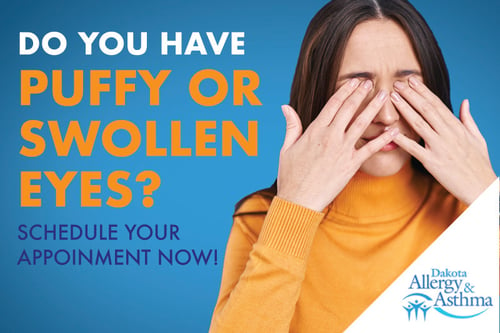While many people associate symptoms such as sneezing, runny noses, or congestion with allergies, swollen puffy eyes can also be a sign of an allergy. Eye allergy symptoms can occur with the aforementioned symptoms or they can occur completely on their own.
Eye allergy symptoms may include:
-
Itchiness
-
Burning
-
Redness
-
Clear, watery discharge
-
Puffiness
-
Swelling
What Triggers Eye Allergy Symptoms?
Eye allergy symptoms can occur from exposure to:
-
Indoor allergens, including dust mites, mold, or pet dander
-
Outdoor allergens, including pollens from weeds, grass, or trees
-
Mold spores both, both outdoor and indoor
Primary Types Of Eye Allergies
- Seasonal and perennial allergic conjunctivitis (SAC and PAC): This is the actual eye allergy and is the most common. It is caused by plant pollens, mold spores, or indoor allergens
- Vernal keratoconjunctivitis, more serious than SAC or PAC and normally occurs in young males who suffer from asthma or eczema
- Atopic keratoconjunctivitis usually occurs in older male patients who have a history of atopic dermatitis
- Contact allergic conjunctivitis, caused by the second type of allergy and is often associated with itch, rashy skin on the eyelids. Fragrances and eye drop preservatives are frequent causes.
- Giant papillary conjunctivitis, which is associated with wearing contact lenses can also cause puffy eyes
Reducing Your Exposure To Allergens
As with any type of allergy, the best way to prevent or reduce allergy symptoms is to avoid the allergen. However, that is not always possible.
For example, if your eye allergy triggers are pollen, you should limit your time spent outdoors during the peak allergy seasons. A common incorrect myth is that wearing sunglasses outdoors can help prevent pollen from getting in your eyes. A better route is to not rub your eyes with your allergen-covered hands and to shower after getting inside to wash off allergens.
Relief from eye allergies
You may be able to find relief from your eye allergy symptoms, including swollen and puffy eyes by using over-the-counter (OTC) antihistamine eye drops or oral antihistamines. Nasal corticosteroid sprays often help, too. Avoid the prolonged use of OTC eye drops with decongestants because they may cause your symptoms to worsen. If you are unable to get enough relief from OTC medications, it might be time to speak to a board-certified Allergist.
For more proven ways to Allergy and Asthma Relief, choose a Real Allergist—one certified by the American Board of Allergy & Immunology (ABAI). For allergy suffers in the Sioux Falls area, Dakota Allergy & Asthma is ready to help.
CLICK HERE: for tips on how to start tackling your allergies on your own.
CLICK HERE: to determine if you should see an Allergist. Working with a Board-Certified Allergist can more effectively start you on the right course to conquering your allergies.







